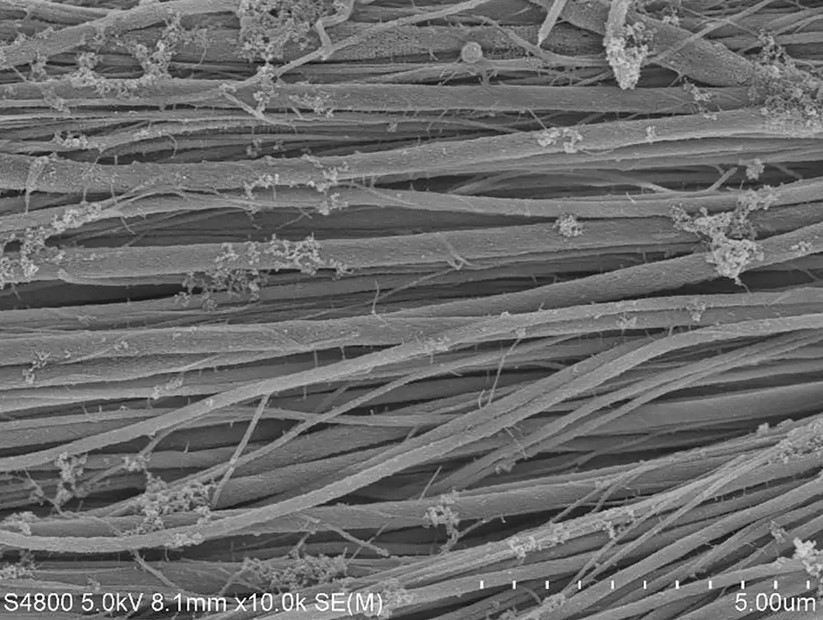Researchers discover why tendons are strong as wire ropes

Under the electron microscope: collagen fiber bundle after mineralization with (the bone mineral) calcium phosphate. © Max-Planck-Institut für Kolloid- und Grenzflächenforschung
A team at the Max Planck Institute of Colloids and Interfaces (MPICI) has discovered with help of BESSY II new properties of collagen: During the intercalation of minerals in collagen fibers, a contraction tension is generated that is hundreds of times stronger than muscle strength. The associated changes in the collagen structure were observed using X-ray diffraction at the BESSY II synchrotron in Berlin-Adlershof while mineralization was taking place.
"This universal mechanism of mineralization of organic fiber tissues could be transferred to technical hybrid materials, for example, to achieve high breaking strength there," says Prof. Dr. Dr.h.c. Peter Fratzl, Director at the institute.
The fiber-forming structural protein collagen is found in tendons, skin and bones, among other places. It is also interesting from a medical or biological point of view to understand what happens in the process of mineralization in bones. Many bone diseases are associated with changes in mineral content in bones and thus altered properties.
Read the full press release on the MPIKG website.
(red/sz)
https://www.helmholtz-berlin.de/pubbin/news_seite?nid=23628;sprache=en
- Copy link
-
Helmholtz Doctoral Award for Hanna Trzesniowski
During her doctoral studies at the Helmholtz Centre Berlin, Hanna Trzesniowski conducted research on nickel-based electrocatalysts for water splitting. Her work contributes to a deeper understanding of alkaline water electrolysis and paves the way for the development of more efficient and stable catalysts. On 8 July 2025, she received the Helmholtz Doctoral Prize, which honours the best and most original doctoral theses in the Helmholtz Association.
-
Hydrogen storage in MXene: It all depends on diffusion processes
Two-dimensional (2D) materials such as MXene are of great interest for hydrogen storage. An expert from HZB has investigated the diffusion of hydrogen in MXene using density functional theory. This modelling provides valuable insights into the key diffusion mechanisms and hydrogen's interaction with Ti₃C₂ MXene, offering a solid foundation for further experimental research.
-
Research up close! The Long Night of Science at HZB
On 28 June, it's that time again: the Long Night of Science will take place from 5 pm to midnight in Berlin and also in Adlershof! Come around and take a look behind the scenes of our exciting research.
